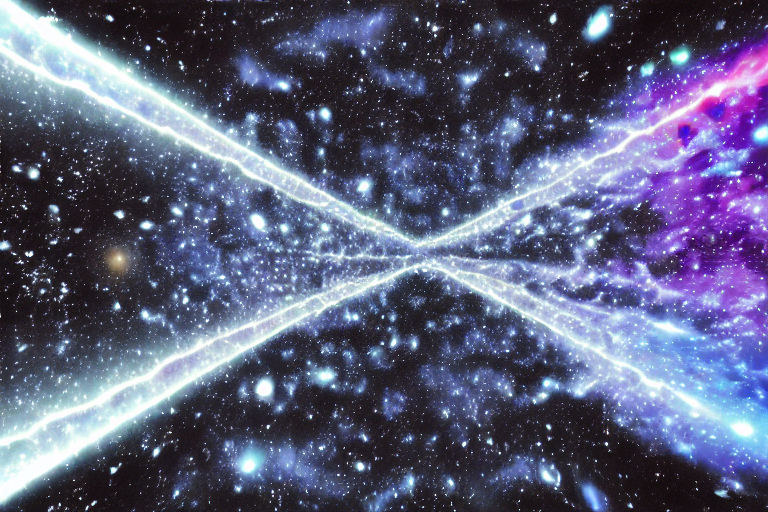The Controversy Over the Nature of Dark Matter in Cosmology
Since the 1930s, astronomers have observed that galaxies are rotating much faster than they should be, based on the amount of visible matter they contain. This discrepancy led to the idea that some invisible and unknown form of matter must be holding these galaxies together. This hypothetical matter was named "dark matter".
Over the years, many theories have emerged to try to explain the nature of dark matter. Some scientists believe that dark matter is made up of exotic particles that have not yet been detected by our instruments. Others propose that the laws of gravity should be modified to account for the discrepancies we observe, rather than invoking the existence of dark matter.
One of the most popular theories of dark matter is the cold dark matter (CDM) model. According to this model, dark matter is made up of non-interacting, slow-moving particles that were created in large numbers during the early universe. Although the CDM model can explain many features of the large-scale structure of the universe, it has been challenged by observations at smaller scales, such as the sizes and shapes of galaxy clusters.
Another theory that challenges the CDM model is called modified Newtonian dynamics (MOND). Instead of positing the existence of dark matter, MOND proposes that the laws of gravity are modified at very low accelerations, such as those experienced by stars at the edges of galaxies. While MOND can explain the observed rotation curves of galaxies without invoking dark matter, it has its own set of problems, such as its inability to explain the observed distribution of matter in the cosmic microwave background.
Despite decades of research, the nature of dark matter remains one of the biggest mysteries in astrophysics. With the help of new and more powerful instruments, astronomers hope to one day shed light on this mysterious substance that makes up nearly 85% of the matter in the universe.
In conclusion, the controversy over the nature of dark matter in cosmology is far from resolved. It is clear that much remains to be discovered, and that new theories and observations will continue to challenge our current understanding of the universe.



